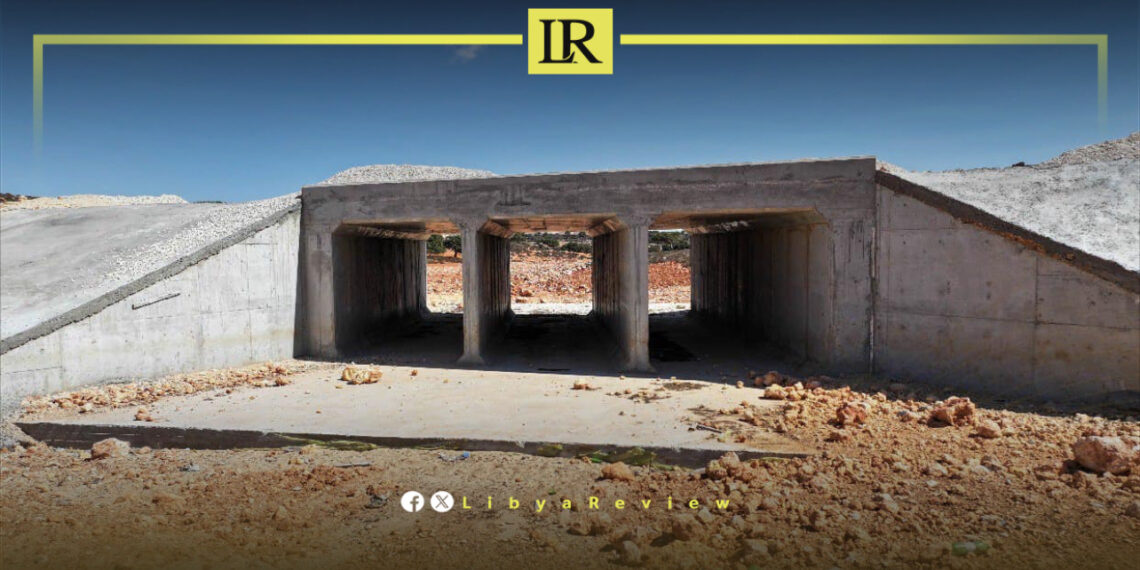The Derna Reconstruction Fund and other affected cities and regions have implemented projects to construct bridges in damaged areas. These areas include Bandas, Omar Al-Mukhtar Municipality, South Omar Al-Mukhtar, Ain Mara, Al-Faidiyah, Shahat, and Qarnada.
These projects are part of a strategic plan prepared by Eng. Belqasim Khalifa Haftar, Director-General of the Libyan Development and Reconstruction Fund and Executive Director of the Derna Reconstruction Fund.
According to a statement posted on the fund’s Facebook page, the projects aim to enhance infrastructure by improving road bridges, facilitating traffic, and boosting flood protection measures. This effort will protect roads and residential areas from the dangers of floods and ensure smooth traffic flow.
The statement concluded that these initiatives are part of broader efforts to rebuild and rehabilitate affected cities and regions.
Libya has been in chaos since a NATO-backed uprising toppled longtime leader Muammar Gaddafi in 2011. The county has for years been split between rival administrations.
Libya’s economy, heavily reliant on oil, has suffered due to the ongoing conflict. The instability has led to fluctuations in oil production and prices, impacting the global oil market and Libya’s economy.
The conflict has led to a significant humanitarian crisis in Libya, with thousands of people killed, and many more displaced. Migrants and refugees using Libya as a transit point to Europe have also faced dire conditions.
The planned elections for December 2021 were delayed due to disagreements over election laws and the eligibility of certain candidates. This delay has raised concerns about the feasibility of a peaceful political transition.
Despite the ceasefire, security remains a significant concern with sporadic fighting and the presence of mercenaries and foreign fighters. The unification of the military and the removal of foreign forces are crucial challenges.


